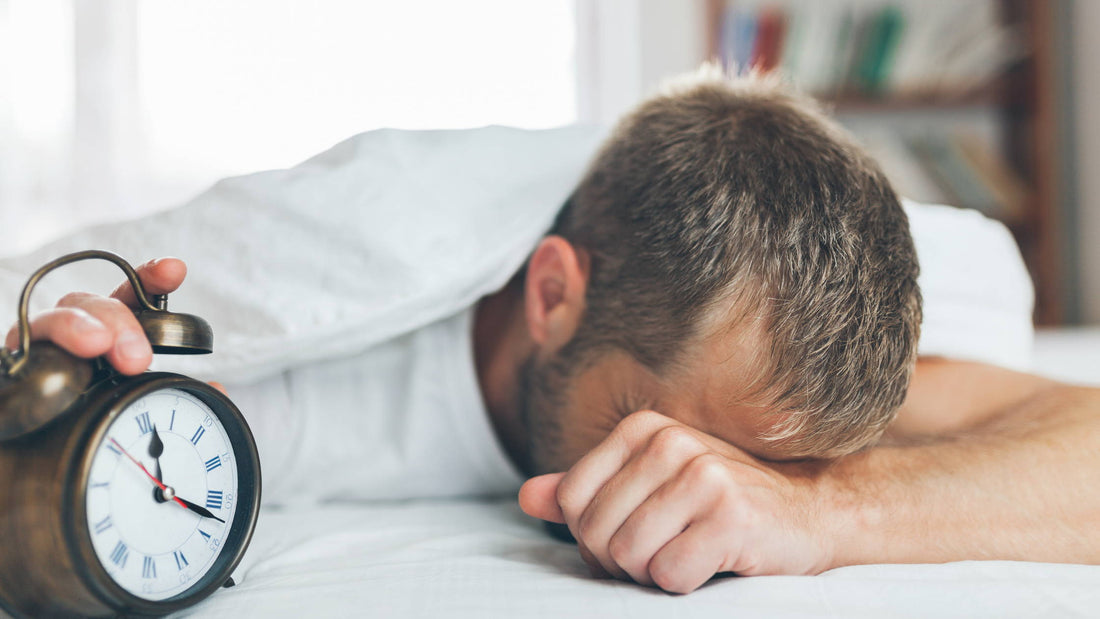If you see a list of all the things that can cause hair loss, you will likely see a mix of medical and non-medical causes. Indeed, when you look at all of the factors that can interfere with hair growth, it may seem surprising that we even have hair. While conditions like androgenic alopecia and alopecia areata get a lot of attention in the hair loss world, lifestyle factors can undoubtedly be impactful on your hair health as well. Everything from your diet and stress levels, to yes, your sleep can cause hair loss. Here, we pay particular attention to why a lack of sleep causes hair loss and what you can do about it.
Sleep and the Hair Growth Cycle
Poor sleep quality affects so many different components of our health. In fact, when our circadian rhythm is thrown off, we can experience changes not only in our energy levels, but also our:
- Waist circumference
- Mood
- Blood sugar control
- Risk for chronic health conditions
- Stress levels
- Diet
- Skin health
- Immune system
Our hair is equally impacted by lack of sleep as well. When we sleep, our bodies release higher levels of melatonin, which is our sleep hormone. According to several studies, melatonin not only regulates our sleep but also helps increase hair growth. Therefore, when we do not produce enough melatonin each day, there is an increased risk that we may experience hair loss.
Additionally, lack of sleep also raises our cortisol levels (our stress hormone levels), which happens to interfere with hair growth and the hair growth cycle. Moreover, melatonin is intricately tied to other hormones in our body (like estrogen and testosterone), which also impact the hair growth cycle.
Strenghten You Hair Now
A Closer Look at Stress and Hair Growth
Stress deserves quite a bit of recognition when it comes to hair loss because there is actually a condition where high stress levels can cause a significant portion of your hair to shed–and we will likely all have this condition at some point.
Telogen effluvium is a condition where a stressful event or circumstance forces a large number of your hair follicles to immediately transition from anagen (the growing phase) to telogen. Most hair follicles stay intact for 3 months once they switch into telogen, which is the final “resting” phase of the hair growth cycle. Therefore, people often do not experience hair shedding until 3 months after a stressful event.
When we are particularly stressed, our sleep patterns are often disrupted. Indeed, lack of sleep and stress often go hand-in-hand. And unfortunately, the less sleep you get, the more stressed you will become.
One of the best things you can do when you are stressed is to actually get more sleep so that your body feels better and you prevent complications like hair loss.
Fight Stress Related Hair Loss
Does Getting More Sleep Help With Hair Growth?
Yes! If ever you needed a good reason to get more sleep, here it is. Getting plenty of consistent rest every day is crucial for restoring hair growth. If you struggle with hair loss related to poor sleep and chronic stress, better sleep will surely help turn things around for you. And, if you have a condition that causes hair loss, you will have a better chance of re-growing your hair if you can restore your body back to its normal homeostatic state.
If you do have a condition like androgenic alopecia (male or female-pattern hair loss) or alopecia areata (an autoimmune condition), you should know that sleep alone will not change the course of your hair loss. However, it will help you keep the hair you do have healthy and serve as an excellent adjunct for the treatments you are using to correct hair loss.
A Few Tips for a Better Night’s Rest
Getting plenty of shut-eye is essential not only for your hair but also for your whole-body health. But, to get a good night’s sleep, you need to set yourself up for success. So here are a few tips for integrating into your nightly routine to improve your rest (and your hair).
- Set the temperature slightly lower than usual. As long as you have warm covers, a somewhat cooler room is an ideal environment for a good night’s rest.
- Create a bedtime routine and stick with it. This routine may include something to help calm your body and mind, like yoga, meditation, or a nice relaxing bath or shower.
- Go to bed at the same time every day. Sticking to a tight schedule on when you go to bed helps your brain become more responsive to when it should release melatonin and when your body can expect to rest.
- Block out any distractions, including light and noise. And speaking of that, your phone is probably the biggest distractor you have in your bedroom, so avoid screen time for at least one hour before sleep, and turn your phone onto a “Do Not Disturb” type of setting.
- Make sure your bed is comfortable. If your mattress, sheets, or pillow is not comfortable, make some changes to make it as inviting as possible.
- Exercise during the day, as that can also regulate your circadian rhythm.
- Don’t eat right before bed. Feeling too full, especially of many of those late-night snack favorites, can make you feel uncomfortable and make it hard to get good quality sleep.

